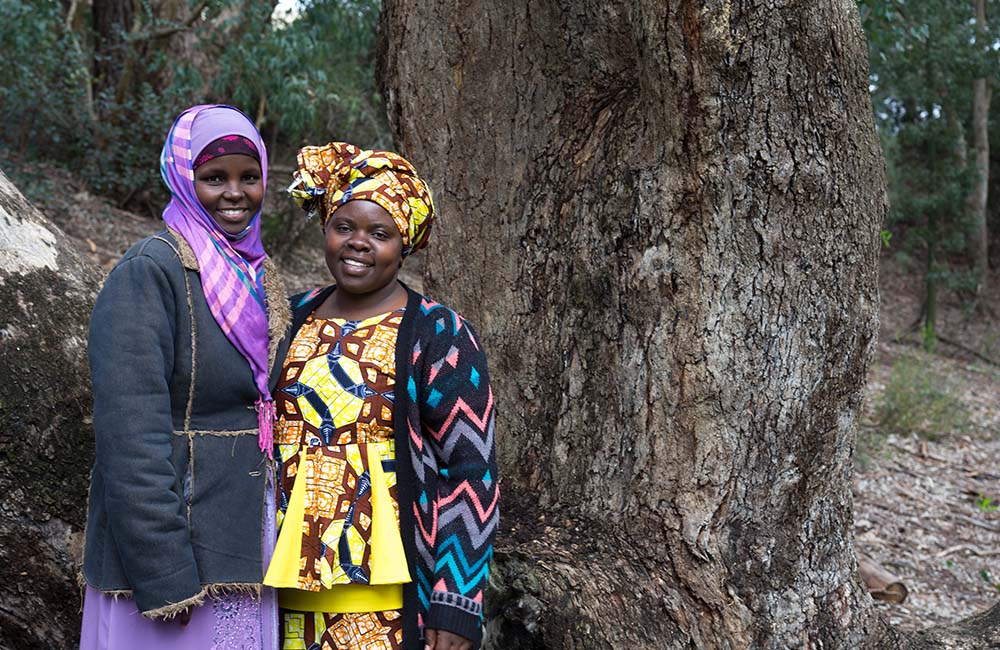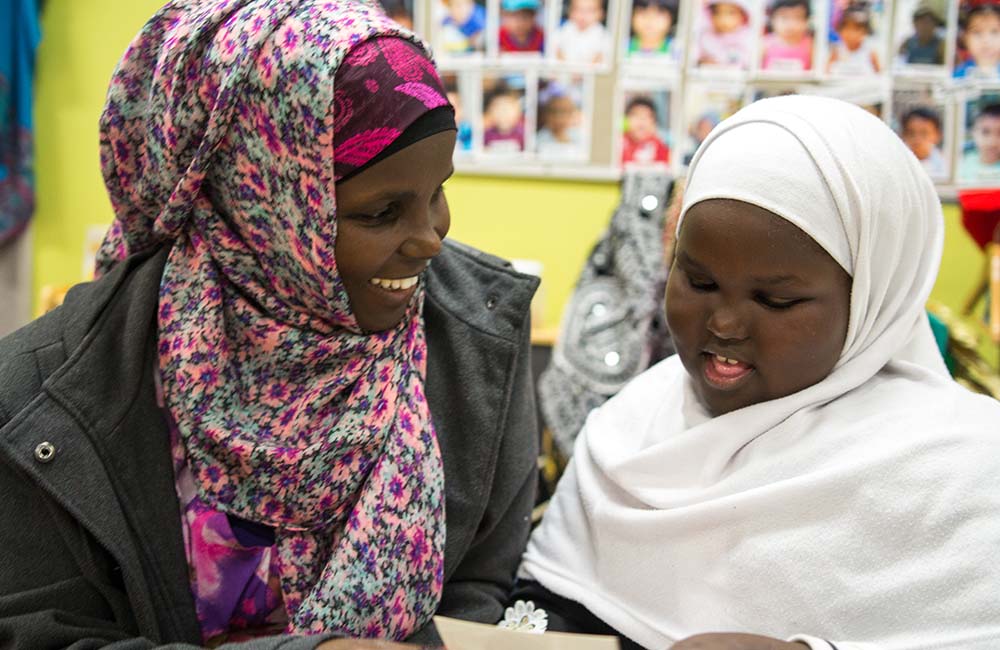On 8 March, International Women’s Day will be celebrated around the world.
At Save the Children, we’re marking it by hearing from some of the bold, brave women we’ve been lucky enough to meet on our travels.
Meet Hawa
Hawa works for Save the Children in Western Australia, supporting families that have come here as refugees. Arriving in Australia might mean they’re safe from conflict and persecution, but it doesn’t mean life will be easy. Often, they have no other family here. No friends. The language is different, the shops are different. Using an ATM, enrolling children in school, finding a job – there’s a lot to get your head around.
Hawa knows first-hand what it’s like to flee conflict. After leaving Somalia in 1991, she spent more than a decade in refugee camps before coming to Australia. Hawa has many, many stories to share. This one is about her determination to learn English, despite all the barriers – and the doubters.
This is Hawa's story, in her own words:
If I met you again, maybe I would thank you.
I think I would tell you how much it hurt. Maybe I would make a joke of it.
I hope you remember, but maybe not. As we say in Somalia, ‘yeele wa hilmama ikn layeele mahil mamo’. Whoever does harm will forget, but whoever you harm will never forget.
I lived in Dadaab at the time, the refugee camp that was my home for 10 years. I worked as a cleaner, and then a cook, for your organisation. One day, during an afternoon tea for the staff, someone said, 'Somali girls are beautiful'. Another agreed. Then you said, 'they’re beautiful but they can’t even write their name.'
I was one of those Somali girls you were talking about. That broke my heart.
No, I didn’t go to school. But it was not my choice. It was my parents’ choice. Most parents chose not to educate their girls. I grew up in the country where my family were cattle keepers, I was married young and I went to Mogadishu, the capital city of Somalia. A year later, the war broke out and I walked for miles and miles before eventually coming to Kenya.
When I first arrived in Daadab, I remember I was given a tree to plant. Just a small one. They said it would be good for shade. "You think I’ll be here when it’s shaded?" I said, "I’m not going to be here for that, I’m going to go back to my home country. I’m going to Somalia". But still, I planted that tree, and over the years I watched it grow.
I was there for ten years. And when that became unsafe, we moved to another camp, to Kakuma. It was hot, and hard, and so, so dusty. But there, I went to school for the first time.

Hawa and Claudine. Claudine is from Burundi – she and her children have been supported by our refugee settlement program in Western Australia.
18 July 2002. The first day I went to school.
I learnt A, B, C. That’s what I learnt. A, B, C. There was an afternoon class and a morning class, so I decided I would go both morning and afternoon. And there was a woman’s course, so I enrolled in that course too. Crazy me.
The teacher – her name was Lucy – she said, I only want people who can write their name and you were right, I couldn’t write my name. I had to get someone else to write it for me. But I looked and looked at it and then I copied. And I practiced. All night I was just writing.
Lots of people dropped out because it was too hard I think, I don’t know, but I never gave up. I always sat at the front of the class, never at the back, and six months later we had a test. Twenty questions. When Lucy gave me mine, it was all cross, cross, cross. I got only one right. One question right.
It was a story, you had to read a story, I remember the story was about a lady from England. It said she works at the bookshop, she lives in Glasgow, I remember all this, I only got Glasgow. That’s the only question. She lives in Glasgow, that’s what I wrote in the space. That’s only one I got right. Everything else, I don’t know what to write.
I cried when Lucy gave me my paper. I cried and cried.
But, when we finished the class, she told me stay back, and I stayed back. And she said, 'you know what?' I said, no. 'You got that question, you did it for yourself. Don’t give up.' She said, 'just come to class. Don’t miss class. Don’t you ever let yourself down'.
And then she gave me this little dictionary. At night time, I asked the Sudanese students to teach me how to find words in the dictionary, so they taught me how to find them. And eventually, when the course finished at the end of the year, I got B+.
And then I enrolled in the next course, and I got A+.
I still have those certificates.
Today, I have five children and my eldest, Sahra, is 25. One day when she was little, when we still lived in the Dadaab, I was sitting in the shade of the tree I had planted when I first arrived in the camp, and my Sahra told me how she wanted to learn. She didn’t want to live the life she was living anymore. I told her "I'll make sure you get the education you want."
To myself, I said,"how can I do that? I have no home, I have no country."

Hawa and her youngest daughter, Zam Zam, look through old playgroup photos. The playgroup plays an important role in the refugee settlement program.
But I never lost hope.
And I was one of the lucky ones. After 14 years living in refugee camps in Kenya, I was lucky to be resettled in Australia. The best country in the world.
I did everything I could for my children. I did everything I could. I think every mother would do what I did – and even if they can’t, they will try their best. In the camp, I told my husband, 'I didn’t have an education, but I’ll make sure she’s educated.' And I did that. I put in 100% and she did as well.
So, today, Sahra is my hero.
Somali girls can’t even write their names? Well, Sahra has finished her first degree in Commerce and now she’s doing Master of Education. Soon she’ll be graduating.
To the man who said, "Somali girls are beautiful, but they can’t even write their name," please remember this story.
I’m sure you said it without meaning to hurt anybody, but if we do meet again, get me a newspaper, and I will read it to you.
Today, I can write my name. My name is Hawa.